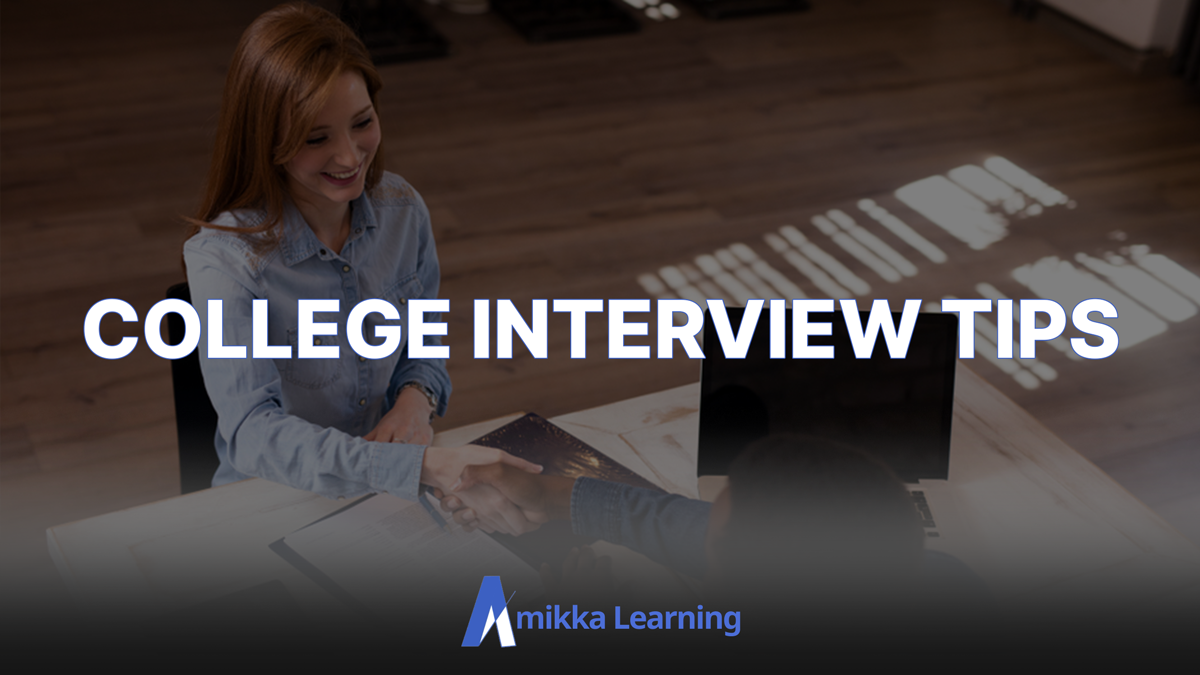


Written by Chris Hernandez
College interviews are as important in the college admissions process as job interviews are to getting a coveted position in the workforce.
Whether it is on campus or with a local alumnus, if a college offers you an interview opportunity, you should take advantage of it. However, just because it is with an alumnus, do not think it is not as serious as an on-campus opportunity. The alumnus will report back to the dean of students or admissions officers, so it is every bit as serious!
If you do manage to land an interview, do not be intimidated! This is a positive sign of a college’s interest in you, as not everyone is afforded the opportunity. This is your chance to let yourself be more than an application, let your personality and passions stand out in real life and not just on paper.
The best way to demonstrate that you are ready for college is to conduct yourself in a professional manner during your interview. This is a really big point, so instead of just giving you a vague answer and telling you to act respectfully and professionally to do well during your interview, we will break it down.
Below are ten tips that will help you look professional and make the best impression on your interviewer.
A suit may be taking things a bit too far, but your attire says a lot about you. Strive to look neat and clean. Your clothes do show respect for the occasion.
Opt for business casual- leave your flip-flops at home. Remember to turn off your phone, as it may make you look distracted, at best, or disrespectful, at worst.
Even though you have provided one in your application, be sure to bring your resume. This will come off as being prepared and eager. It may also be helpful in regards to answering any questions the interviewer may have.
Apart from bringing the necessary documents, try to think of possible questions you may get asked and find ways to answer them.
For example, if they ask you about your academic strengths, you may be able to use your resume to prompt you in answering the question and provide background on it. Instead of just answering their question, expand upon it. Preparing for the interview may help you, as you are less on the spot.
Showing up too early can be an indication of nerves and anxiety, plus you will spend more time feeling nervous while waiting. However, showing up late demonstrates a lack of care or responsibility. Arrive on time to demonstrate reliability and respect for the interviewers time.
Before the interview, research relevant information about the university, such as its history, academic offerings, and statistical facts. Knowing this can help you give better answers, so it is a big part of being prepared.
You need to be able to explain why you want to attend that particular institution; using specific examples from your research will help you give a more in-depth answer.
Your first impression on an interviewer will play a big role in your admission. Be sure to be respectful. Shake the interviewer’s hand, use eye contact, smile, and speak clearly.
Don’t ramble on about topics that aren’t relevant, and be concise while avoiding one-worded answers. Communicate clearly and confidently.
Keep in mind you are an interviewer too. The college representative may be interviewing you to see if you are a good candidate for their school, but you are also interviewing them to decide if the college is a good fit for you.
Be prepared to ask questions and ask for clarification until they are answered to your satisfaction, as long as you are respectful.
This may seem obvious, after all, it is the whole point of the interview. But students often forget that and are too consumed by nerves and forget to talk about themselves.
The college representative wants to know what you will do with your education. Take this opportunity as a chance to discuss your dreams and other things that aren’t part of your application.
This interview is your chance to let the college know more about you, and provide some insight that may just make you stand out over another possible candidate. Share your talents, interests, and passions, not just what you have on your resume.
Emphasize what you expect the college to do for you in terms of your professional future.
Colleges like to see students are enthusiastic about them, as they may accept a student who had no intention of attending and passed up on a student who was serious instead.
That’s why you need to bring the energy to the interview.
You may be the smartest or most talented person in the world, but if you don’t demonstrate your passion, how are they going to know?
There is, however, a delicate line you have to be careful not to cross. Passion and hyperactive are two different things. Make sure you demonstrate passion and not an adrenaline rush.
If you’ve made it this far in the application process, you are probably getting the interview so that the representative can see whether or not you are serious about attending.
Be sure to express how much you’d like to be a student at that university or what it would mean to you to graduate from there.
On your way out, ask for your representative’s contact information. Writing a thank you note is a nice detail that will surely make you memorable.
Wait about a week after the interview to recapitulate your gratitude for meeting with you and providing information. You can either mail a handwritten card or write a professional email. Whichever you choose to send, make sure it is free of grammatical, punctuation, and spelling errors.
For interview preparation help, contact Amikka Learning. We offer prep courses and simulate real interviews to ensure you are prepared and ready to conquer.